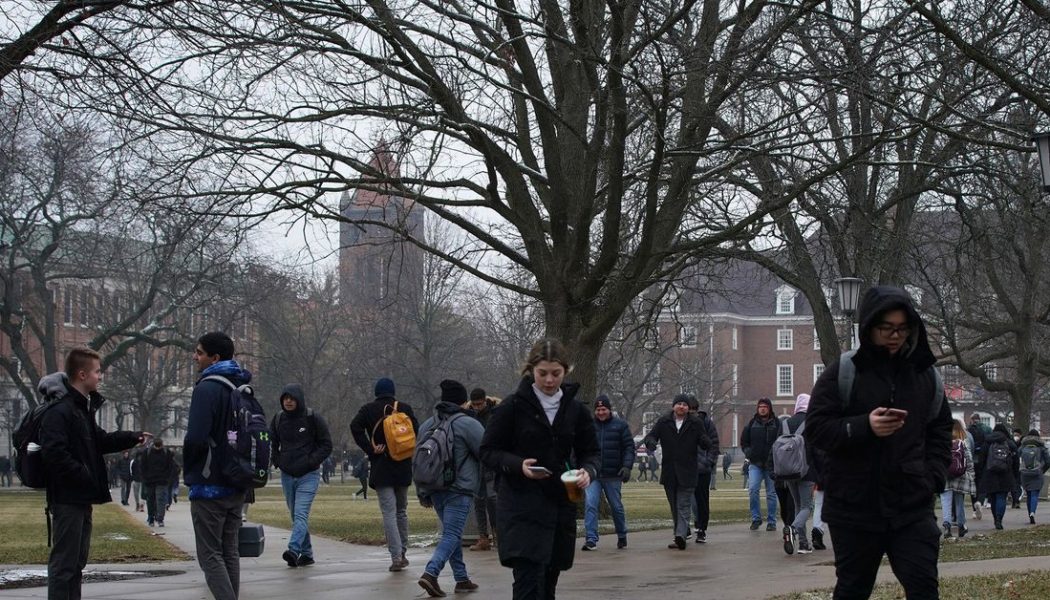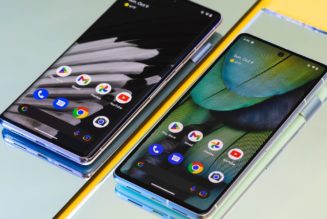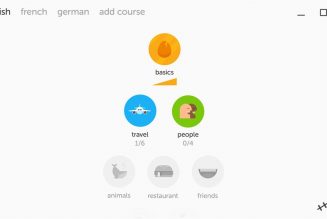
The University of Illinois Urbana-Champaign announced that it will discontinue its use of remote-proctoring software Proctorio after its summer 2021 term. The decision follows almost a year of outcry over the service, both on UIUC’s campus and around the US, citing concerns with privacy, discrimination, and accessibility.
Proctorio is one of the most prominent software platforms that colleges and universities use to watch for cheating on remote tests. It uses what its website describes as “machine learning and advanced facial detection technologies” to record students through their webcams while they work on their exams and monitor the position of their heads. The software flags “suspicious signs” to professors, who can review its recordings. The platform also enables professors to track the websites students visit during their exams, and bar them from functions like copy / pasting and printing.
Though Proctorio and similar services have been around for years, their use exploded in early 2020 when COVID-19 drove schools around the US to move a bulk of their instruction online. So, too, has scrutiny towards their practices. Students and instructors at universities around the country have spoken out against the widespread use of the software, claiming that it causes unnecessary anxiety, violates privacy, and has the potential to discriminate against marginalized students.
In an email to instructors, ADA coordinator Allison Kushner and Vice Provost Kevin Pitts wrote that professors who continue to use Proctorio through the summer 2021 term are “expected to accommodate students that raise accessibility issues,” and that the campus is “investigating longer-term remote proctoring options.”
Proctorio has been controversial on UIUC’s campus since the service was introduced last spring, and concerned students only grew more vocal through the fall 2020 semester. (Due to COVID-19, the school now operates with a hybrid of online and in-person instruction.) Over 1,000 people signed a petition calling on the university to stop using the service. “Proctorio is not only inefficient, it is also unsafe and a complete violation of a student’s privacy,” reads the petition.
UIUC is one of many campuses where remote proctoring has faced backlash. A Miami University petition, which gathered over 500 signatures, declared that “Proctorio’s design invades student rights, is inherently ableist and discriminatory, and is inconsistent with peer reviewed research.” Over 3,500 signatories have called on the University of Regina to end its use of ProctorTrack, another automated proctoring service. A 1,200-signature petition urges the University of Central Florida to dump Honorlock, another similar software, declaring that “students should not be forced to sign away their privacy and rights in order to take a test.”
Professors and staff have criticized the service as well. The Electronic Privacy Information Center (EPIC) filed a complaint against Proctorio (alongside four other test-proctoring services), claiming that the services’ collection of personal information amounts to “unfair and deceptive trade practices.” Even US senators have gotten involved; a coalition including Sen. Richard Blumenthal (D-CT), Sen. Elizabeth Warren (D-MA), and Sen. Cory Booker (D-NJ) sent an open letter to Proctorio and two similar services in December citing a number of concerns about their business practices. “Students have run head on into the shortcomings of these technologies—shortcomings that fall heavily on vulnerable communities and perpetuate discriminatory biases,” wrote the senators.
The complaints largely revolve around security and privacy — Proctorio’s recordings give instructors and the service access to some of test-takers’ browsing data, and a glimpse of their private homes in some cases. (Proctorio stated in its response to the Senators’ letter that “test-taker data is secured and processed through multiple layers of encryption” and that Proctorio retains its recordings “for the minimum amount of time required by either our customer or by applicable law.”)
Accessibility is another common concern. Students have reported not having access to a webcam at home, or enough bandwidth to accommodate the service; one test-taker told The Verge that she had to take her first chemistry test in a Starbucks parking lot last semester.
Students have also reported that services like Proctorio have difficulty identifying test-takers with darker skin tones, and may disproportionately flag students with certain disabilities. Research has found that even the best facial-recognition algorithms make more errors in identifying Black faces than they do identifying white ones. Proctorio stated in its response that “We believe all of these cases were due to issues relating to lighting, webcam position, or webcam quality, not race.”
“We take these concerns seriously,” reads UIUC’s email, citing student complaints related to “accessibility, privacy, data security and equity” as factors in its decision. It recommends that students for whom Proctorio presents a barrier to test-taking “make alternative arrangements” as the program is phased out, and indicates that accessibility will be considered in the selection of the next remote-proctoring solution.
In a statement to The Verge, UIUC Associate Chancellor Robin Kaler said “ We had secured a short-duration license for Proctorio usage in March 2020 under an emergency procurement action permitted by the State of Illinois in direct response to COVID. We sent a message notifying instructors that they will not have it as a tool beyond the duration of the short-term procurement. We are investigating remote proctoring tools for longer term usage.”
We’ve reached out to Proctorio for comment, and will update this story if we hear back.
Update, 10:27AM ET: Added UIUC statement.










